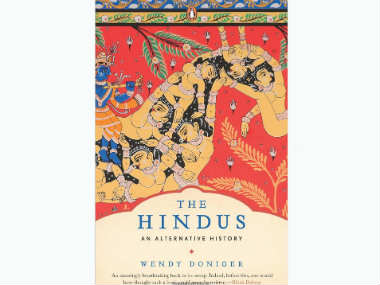By now you would think enough has been written about Wendy Doniger’s The Hindus: An Alternative History and Penguin’s sudden decision to withdraw the book and pulp all remaining copies. It hasn’t. That’s because there are too many unanswered questions about this particular episode, and too many off-shoots of the episode that are disquieting in the extreme. In short, what’s happened recently isn’t only about one book. What most commentators have written about is not so much about Doniger’s alternative history as about her subject ie Hinduism. I suspect that’s partly because not too many people have actually read the book – it’s scholarly, academic, and its size (800 pages plus) is intimidating. I tried to get a copy the day heard news of the withdrawal. “Sorry,” was the answer from all bookshops. “We are all sold out.” Thanks to the Shiksha Bachao Andolan Samiti, its aim to stop people reading Doniger has had the effect of people reading Doniger who wouldn’t have read Doniger. Penguin is probably (and secretly) laughing all the way to the bank. Every commentator, in his or her own way has made the central point that the Samiti, its chief Dina Nath Batra and their tribe of Hindu zealots all over the world, are trying to make Hinduism what it is not: puritanical, austere, devoid of joy and colour. By doing this, we can add, they are trying to make the religion they profess to defend similar to the religions they presumably dislike, Islam and Christianity. In language which is colourful in its own way, they said in a statement, “The whole Hindu society is angree (sic) to see Lord Krishna encircled by naked women and sitting on the buttock of naked women on the cover of the book." You can’t, of course, judge a book by its cover, but the cover isn’t half as salacious as this Angree Hindu society is making it out to be: it’s the usual playful scene of Krishna and semi-clad gopis, a scene we have seen so often that we neither notice it, nor look at it as being provocative. [caption id=“attachment_1388575” align=“alignleft” width=“380”] Screenshot of Wendy Doniger’s book.[/caption] The fact that Batra & Co object to the depiction now, shows that we haven’t got over our ‘How will foreigners see us’ mentality. It’s ok for us in India to see Krishna cavorting with Radha and a crowd of gopis; but when foreigners use the same image our hackles rise. In this the defenders of our faith again achieve the exact opposite of what they set out to do: the foreigners they are subconsciously trying to impress, think less of us because of the double standards we adopt. The fight over Doniger’s book, from the start, was an unequal battle. On one side, was the scholarly writer, a University of Chicago professor with two doctorates (Sanksrit and Indian Studies), on the other, people who send out a statement which says, “All Hindu deities, Gods and Goddess great persons and revolutionist are worstly insulted in this book, for unknown reasons.” And guess who wins in this unequal battle? The angree Hindu Society, of course. What made Penguin cave in? Was it because the sales of Doniger’s book were so meagre that it didn’t justify continuing the case they were contesting in court, a case they would almost certainly have won, given the generally liberal track record of our higher courts? Or was it because of threats of violence? Read Penguin’s statement in which they say “we have a moral responsibility to protect our employees against threats and harassment where we can.” In either case, the publishing house comes out badly: When you are a publisher, you become willy-nilly defender of thought and word, and by an unwritten code when you are driven to the wall, commercial interests should become subservient to the far nobler aim of protecting free speech and thought. As for threats to their employees, did they go to the police and ask for protection? Bollywood producers who make no claims to be defenders of intellectual discourse, routinely face extortion threats from the underworld which are far more frightening and real. Do they then stop making films? Penguin’s action is part of a recent and extremely disturbing trend. Just weeks before, Bloomsbury quietly withdrew Jitender Bhargava’s The Descent of Air India because Praful Patel threatened to take them to court. This was notwithstanding the fact that the publisher had carefully vetted the manuscript before publication, and Bhargava had documentation to back up whatever he said in the book. There have been other books on ‘important’ people which have similarly been suppressed, like a recent book about Subrata Roy and his Sahara empire. What does this tell us? That our ever expanding publishing industry will now print only books that are considered safe? Will no one be able to question conventional wisdom about history, politics and mythology? Will no one be able to expose the wrong-doings of politicians and corporate leaders? It’s a frightening thought, made even more frightening by our likely future political dispensation. Narendra Modi’s Gujarat was the first and only state, to ban Joseph Lilyweld’s book on Gandhi. No wonder Dina Nath Batra, in an interview to The New York Times, said that soon the RSS will have the power to suppress all books it doesn’t like. “The good times,”
he told Mint, ”are coming.”
Will no one be able to question conventional wisdom about history, politics and mythology? Will no one be able to expose the wrong-doings of politicians and corporate leaders?
Advertisement
End of Article
Written by Anil Dharker
Anil Dharker is a writer and columnist on social and political issues. see more


)
)
)
)
)
)
)
)
)



